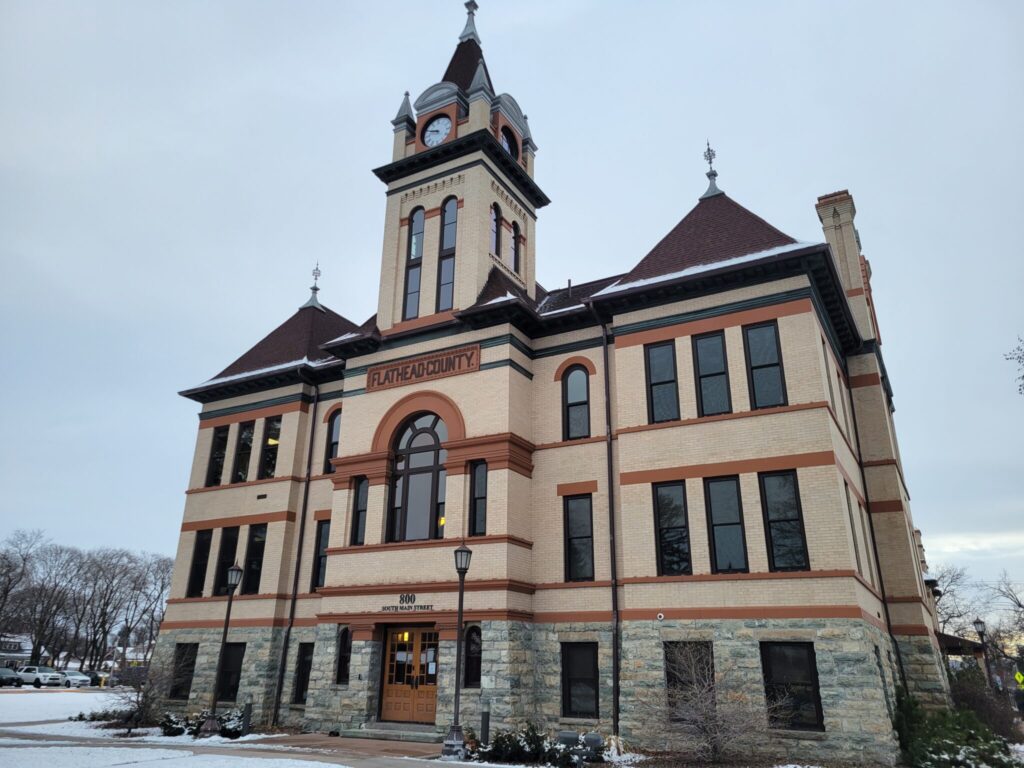Before a packed audience, the Flathead County Commissioners rejected a $9 million affordable housing investment from state and private sources, becoming one of only three counties to do so. The 2023 Montana Legislature established the Montana Community Reinvestment Plan via House Bill 819, earmarking $56 million for homebuyer assistance aimed at low- and middle-income residents. Amid soaring housing costs, Flathead County’s median home price exceeds $650,000, notably higher than the state average of $452,050, as reported by Zillow.
The commissioners voted 2-to-1 against accepting the funds, which will now be redirected to counties participating in the program. Commissioner Randy Brodehl argued, “I’m convinced HB 819 takes money from the pockets of you, the taxpayers, and redistributes it across the state of Montana,” expressing concerns over financial risks to taxpayers and homebuyers. Commissioner Brad Abell supported the funding, but the majority ruled against it despite public comments heavily favoring the program.
Jill Davis, a long-time renter, voiced her desire for homeownership, emphasizing the need for stability and autonomy. She stated, “Everyone I know has a housing story. Everyone is trying to buy their first home or people are having to move away because they can’t buy a house or afford rent.” Numerous organizations, including the Northwest Montana Association of Realtors and the Kalispell Chamber of Commerce, supported the funding for workforce housing. Kalispell Mayor Mark Johnson said, “The opportunity to benefit from $9 million in resources dedicated to workforce housing and homeownership is crucial for our community.”
Community Reinvestment
House Bill 819, supported by the Legislature, launched the Montana Community Reinvestment Act, creating a deed-restricted housing program with $50 million in state funding, distributed based on county GDP. An additional $6 million incentivizes workforce housing in counties with state-owned facilities. Counties must opt into the program and partner with a Community Reinvestment Organization to manage funds and secure matching private investments, doubling available resources to $112 million.
Eligible residents earning 60% to 140% of the area median income can receive interest-free loans up to 30% of a home’s purchase price, with monthly payments capped at 30% of gross income. As of the deadline, Flathead, Sweet Grass, Granite, and Fallon counties opted out, while Richland and Daniels took no action. Richland County Commissioner Duane Mitchell criticized the program as “socialism.”
Making Their Case
At the meeting, nearly 20 public speakers highlighted the impact of housing costs on community retention. Kalispell resident Drew Rafkin, already a homeowner, supported HB 819, stating it could inspire community growth and help retain local talent. Conversely, opponents like Doug Adams argued that housing issues should be addressed by individuals, not the government. Montana Rep. Tanner Smith urged the commissioners to reject the funds, framing the bill as “Democrat policies.” Despite passing in the Republican-led legislature, Commissioner Pam Holmquist opposed the bill due to concerns over potential debt for homebuyers and government involvement.
Commissioner Abell stressed that rejecting the funds meant forfeiting them to other counties. Brodehl maintained that the decision was not solely about the community reinvestment but the entire HB 819 legislation. Housing advocate Ian Fleming expressed disappointment, noting that counties like Bozeman and Missoula would benefit from Flathead’s decision.
In the Final Stretch, Counties Schedule Votes on Homebuyer Assistance
As the deadline approached, Valley and Sanders County voted in favor of accepting funds. Sanders County Commissioner Tony Cox noted that rejecting the funds would only see them used elsewhere. Of the 56 counties, six either voted against or took no action, effectively declining the funds. Flathead County remains the only populous county to opt-out, redistributing its $4.5 million allocation.
Roosevelt County Commissioner Gordon Oelkers expressed optimism about the potential benefits of the funds, especially if surplus from other counties becomes available. This development leaves Flathead County grappling with its decision’s implications while other counties prepare to utilize the funding for housing solutions.
“`





